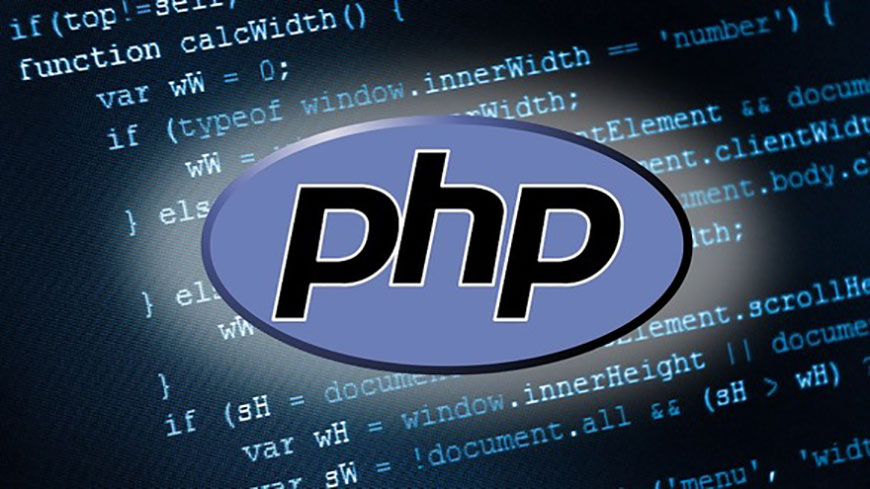What is PHP? Every thing about it.
What is PHP Programming?
PHP is a server-side scripting language used to develop static, dynamic, and web application websites. PHP is “Hypertext Preprocessor,” originally for “Personal Home Page.”
PHP scripts are executed on a server that has PHP installed. Client computers that access these scripts only need a web browser. A PHP file contains PHP tags and typically ends with the .php extension.
In This Article, You Will Learn:
What is a Scripting Language?
A script is a set of programming instructions interpreted at runtime. A scripting language is designed to execute these scripts in real-time. Scripts are usually embedded into other software environments to enhance functionality or automate routine tasks.
Server-side scripts (like PHP) are interpreted on the server.
The browser interprets client-side scripts (like JavaScript).
Both PHP and JavaScript can be embedded into HTML pages.
Programming Language vs. Scripting Language – What’s the Difference?
| Programming Language | Scripting Language |
|---|---|
| Has all the features needed to develop complete software. | Mainly used for automating tasks or enhancing applications. |
| Needs to be compiled before execution. | Typically interpreted without compilation. |
| Does not require embedding into another language. | Commonly embedded into other software or web environments. |
What Does PHP Stand For?
Originally, PHP meant Personal Home Page, but it now stands for the recursive acronym PHP: Hypertext Preprocessor.
PHP code can be embedded directly into HTML or used alongside various web template systems, content management systems (CMS), and frameworks.
PHP Syntax
A PHP file can also include HTML tags and client-side scripts like JavaScript. Knowing HTML is advantageous when learning PHP, though it’s possible to learn PHP without it. However, basic HTML knowledge is recommended.
Knowledge of Database Management Systems (DBMS) is essential for building database-powered applications. Understanding JavaScript and XML is beneficial for advanced functionality, such as interactive apps or web services.
Why Use PHP?
Many programming languages are available, so why choose PHP for web development? Here are some reasons:
Open-source and free
Short learning curve compared to JSP or ASP
Extensive documentation and community support
Widespread hosting support — most web hosts support PHP by default
Frequent updates to stay current with web technologies
Server-side execution — no need for clients to install PHP, just a browser
Built-in support for MySQL, though compatible with:
PostgreSQL
Oracle
MS SQL Server
ODBC, etc.
Cross-platform — runs on Windows, Linux, macOS, etc.
Who Uses PHP?
Many major tech companies and platforms use PHP to power their web services:
Facebook: Built on PHP; created HipHop for PHP to optimize performance.
Wikipedia: Entirely built in PHP.
CMSs: WordPress, Drupal, Joomla, Magento, and Shopify are PHP-based.
Web hosting providers: Companies like BlueHost, SiteGround, and WhoGoHost use PHP on their servers.
What is PHP Used For? – Market Share
Over 20 million websites and web applications currently use PHP, and around 80% of websites on the Internet are powered by PHP.
PHP File Extensions
To help the server recognize PHP scripts, files must be saved with the .php extension. Other older extensions include:
.phtml.php3.php4.php5.phps
PHP is designed to work seamlessly with HTML and can be embedded directly into HTML code. Files containing only PHP code are called Pure PHP files.
The server processes PHP code and returns HTML output to the browser. PHP code must be enclosed in special tags:
<?php ... ?>
PHP is case-sensitive — VAR and var are different. While the tags are not case-sensitive, it’s best practice to use lowercase.
PHP statements end with a semicolon ;. Even if only one statement is used, it’s best always to include the semicolon for consistency.
PHP Hello World Example
Below is a simple PHP script that outputs “Hello world” in a browser:
<?php echo "Hello world"; ?>
Output:
Hello world
Is PHP Dying?
There’s an ongoing debate about PHP’s future due to the rising popularity of languages like Node.js, Python, and Golang. Memes and jokes often target PHP, but is it dying?
Not. Despite criticism, PHP still powers around 80% of websites. That means, statistically, 8 out of 10 websites you visit likely use PHP.
In terms of job availability, PHP ranks well. According to Indeed, PHP developers earn competitive salaries — the average salary for a PHP developer in the U.S. is $86,000/year. Many also earn money by building WordPress themes and plugins.
Conclusion
PHP remains a dominant and widely used web programming language. Despite debates about its relevance, it continues to be a solid choice for developers and companies alike. With a significant market share, strong community, and ongoing demand, PHP isn’t going anywhere anytime soon.

